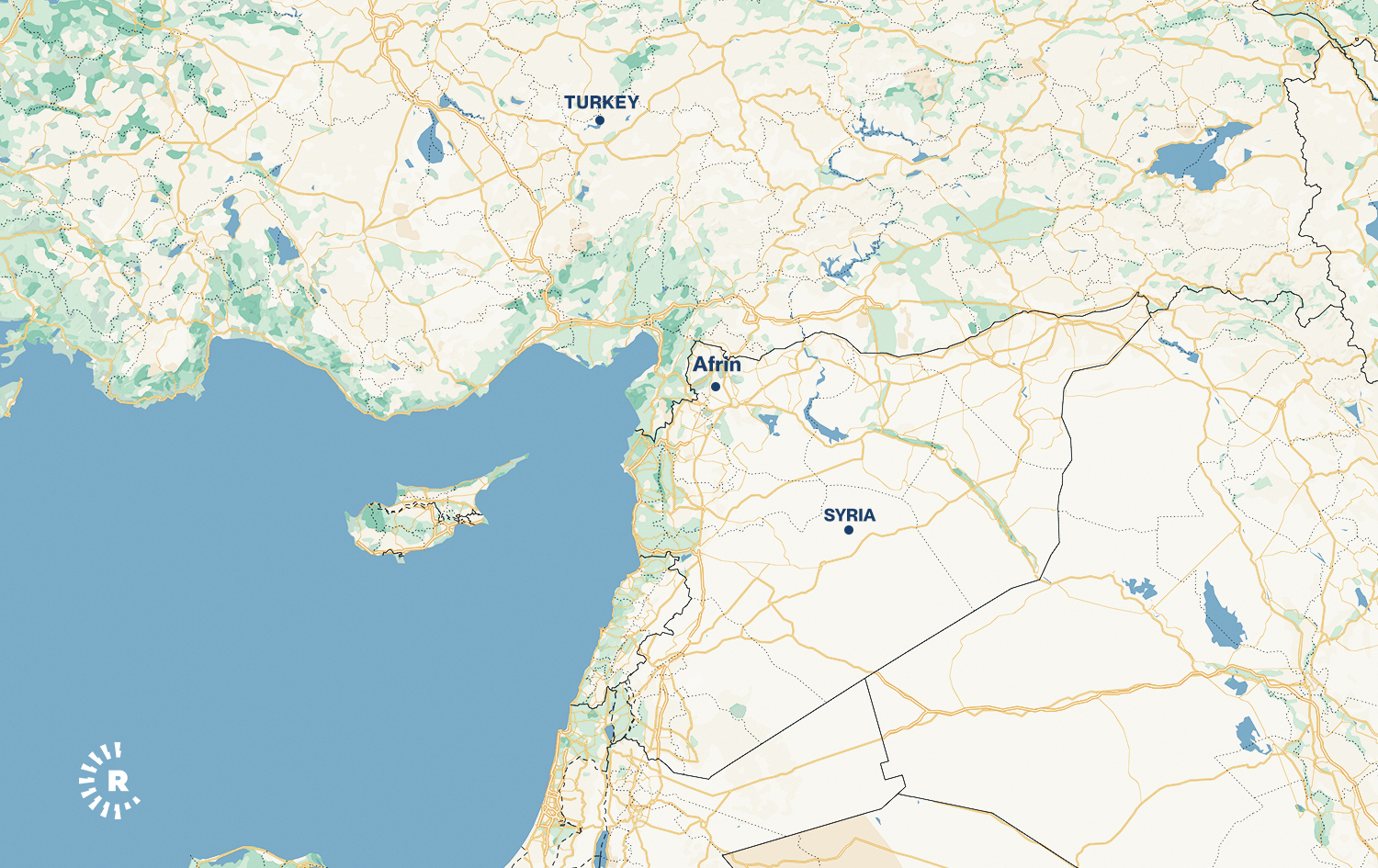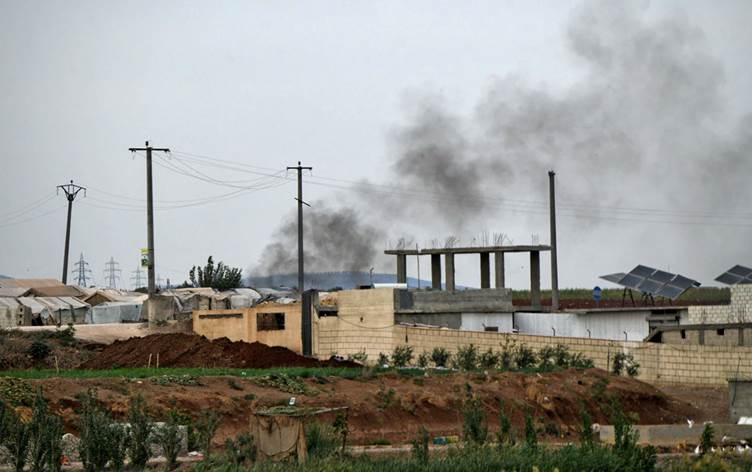ERBIL, Kurdistan Region - Hay’at Tahrir al-Sham (HTS), a radical group which has been internationally recognized as a terrorist organization, late last week took control of the Kurdish city of Afrin in northwest Syria which had been invaded by Turkey-backed forces since 2018.
Afrin city was predominantly populated by Kurds before it was invaded by Turkey and its Syrian proxies, known as the Syrian National Army (SNA), under the pretext of fighting terrorism in March 2018. The city used to be controlled by the People’s Protection Units (YPG) - backbone of the US-allied Syrian Democratic Forces (SDF). The Kurdish group is listed as a terrorist organization by Ankara which claims that it is the Syrian branch of the Kurdistan Workers’ Party (PKK). Hundreds of thousands of Kurds fled the city and the ethnic group no longer makes up the majority of the population.
PKK is an armed group fighting for the increased rights of Kurds in Turkey. Ankara has designated it as a terrorist organization.
The HTS, formerly known as al-Nusra Front, controls the northwestern province of Idlib and has fought the Syrian regime forces and Russia for years. The radical group and a number of groups affiliated to the SNA, such as al-Hamza Division (al-Hamzat), Sultan Suleiman Shah Division and Ahrar al-Sham, deployed forces to Afrin on Thursday and clashed with the SNA-affiliated Third Legion which used to be in control of the city. The Kurdish city fell under the control of the HTS and currently only the local council, affiliated to the Turkey-backed interim government, remains in the hands of the legion, Rami Abdulrahman, head of the Syrian Observatory for Human Rights (SOHR), told Rudaw English on Sunday.
Hamam Issa, an expert in the affairs of armed groups in northern Syria, spoke from Idlib to Rudaw on Saturday. He said that the interim government and the HTS have held talks to “hand over the entire administration of Afrin and the countryside to the interim government.”
He added that the HTS commanders have also held meetings with dignitaries in Afrin.
“The leadership of HTS met with dignitaries from the city of Afrin and presented them with several proposals, including managing the area, maintaining the security of the area, and cooperating with them in order to prevent any violations of the right of civilians, the original inhabitants of Afrin, and the displaced,” noted the Syrian expert.
Turkey has reportedly deployed more forces to Afrin to deescalate the tensions. However, Ankara has not commented on the unrest so far, making some pundits believe that this could be a game between Russia and Turkey.

The Syrian Opposition Coalition, the political wing of the SNA, has denounced “the use of arms by some armed opposition groups in northern Syria to resolve disputes,” calling on the groups “to immediately stop the infighting in order to prevent further bloodshed and preserve the gains of the revolution in the freed territories.”
Hussein Omar, a Belgium-based researcher in strategic affairs, told Rudaw on Saturday that the HTS’ deployment to Afrin followed an “agreement” with Ankara.
“There is an alliance with the Turks because [Turkish President Recep Tayyip] Erdogan wants to win the 2023 elections by getting rid of these dismantled mercenary gangs or those who further spread chaos, which annoys the Turks, just as people complain about their practices,” Omar said without elaborating how such a move can help Erdogan win the June 2023 parliamentary elections.
The Turkish main opposition party, Republican People’s Party (CHP) has opposed Turkey’s policy in Syria. It argues that Ankara should have good relations with the Syrian regime rather than armed groups.
He noted that Russia is playing a key role in the developments in Afrin. “I believe that this matter took place in agreement with Russia, so that Russia can later attack the HTS under the pretext of fighting terrorism.”
The HTS is listed as a terrorist organization by a number of countries, including the US and Turkey.
Afrin Local Council said in a statement on Saturday that a delegation from the interim government visited the city and met with local officials and commanders to discuss “the security and service reality in the region and ways to develop them.”
The unrest came days after the death of a prominent activist in the SNA-controlled al-Bab city. Muhammad Abdul Latif, locally known as Abo Ghanoum, and his wife were killed by unidentified gunmen on October 7. The Third Legion, which controls the city, launched an investigation and later concluded that the couple were killed by al-Hamzat group. Therefore, the legion raided the al-Hamzat’s bases, expelling them from al-Bab and Afrin.
The HTS expressed support to the al-Hamzat and launched attacks against the Third Legion.
A ceasefire has been signed by both fighting sides and calm has somehow returned to Afrin but schools and businesses in al-Ashrafieh district are closed and people remain in their houses. There have been cases of theft in some parts of the city, according to the SOHR.
Infighting between the members of the SNA is not something new. There have been clashes between members of the military umbrella dozens of times over land control. There have also been large protests against lack of basic services and high prices.
Additional reporting by Hussein Omar









Comments
Rudaw moderates all comments submitted on our website. We welcome comments which are relevant to the article and encourage further discussion about the issues that matter to you. We also welcome constructive criticism about Rudaw.
To be approved for publication, however, your comments must meet our community guidelines.
We will not tolerate the following: profanity, threats, personal attacks, vulgarity, abuse (such as sexism, racism, homophobia or xenophobia), or commercial or personal promotion.
Comments that do not meet our guidelines will be rejected. Comments are not edited – they are either approved or rejected.
Post a comment